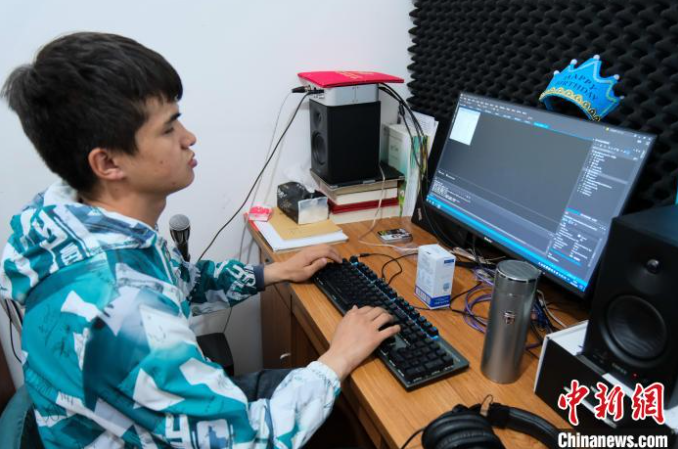Visually impaired programmer revolutionizes braille translation in Xizang
Updated: 2024-04-30 By Palden Nyima and Daqiong (chinadaily.com.cn)  Print
Print 



Nyima Phuntsok, a visually impaired programmer in the Xizang autonomous region, demonstrates how to operate a computer using his own invented program on April 28, 2024. [Photo/Chinanews.com]
Nyima Phuntsok, a visually impaired programmer in the Xizang autonomous region, has been developing programs and braille translation to serve more visually impaired groups for years, Xizang Daily reported.
Nyima Phuntsok is from Sakya county of Shigatse. At four years old, he was taken to the Lhasa Special Education School in the regional capital, Lhasa, to study braille for eight years. There, he learned three types of braille languages: Tibetan, Chinese and English.
At a recent book exhibition in Lhasa, Nyima Phuntsok set up a booth for non-visual creativity. As a crowd gathered, he said, "Ordinary people read with their eyes, but we touch the text with our hands and feel it with our hearts. You can try reading these braille books on the table."
Visitors were surprised to learn he is the region's first visually impaired programmer.
In 2019, he enrolled at Lhasa Normal College, where he majored in primary education.
"Because we need to translate plain text into braille first and then learn its meaning based on braille, the time for visually impaired individuals to learn the text is several times longer than that of ordinary people," Nyima Phuntsok was quoted as saying by Xizang Daily.
Because of this, after graduating from college, he started to develop programs to serve visually impaired groups through self-study programming courses and conducted braille translation work.
In October 2019, Nyima Phuntsok and three of his classmates, who are also visually impaired, established the Xizang Non-Visual Creative Cultural Technology Co Ltd. The company provides programming development, audiobook and radio drama recordings, music production, blind massage and other services.
He hopes that through software development, visually impaired groups can save time translating plain text while reading, improving their learning and reading efficiency.
Over the past two years, he has led his team and translated over 130 Tibetan books into braille. This includes all Tibetan language textbooks from primary to junior high school and Tibetan language books such as the Gyushi, or the Four Medical Tantras, and the Mirror of Tibetan History.
"In an era with rapid technological advancement, visually impaired individuals should not remain stagnant and complacent. Instead, they should cherish the opportunity to integrate with modernization and learn new technology."








